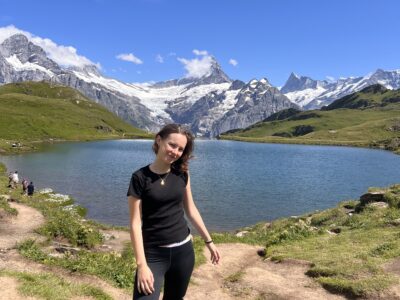By: Deborah Sachare
“Acquire skills—not just knowledge, talk to everybody about your interests, and learn to drive a manual car,” were some pieces of advice given by PhD students to undergraduates at a recent brown bag luncheon presented by Columbia’s Undergraduate Program in Sustainable Development.

Amelia Paukert, a fourth year PhD candidate in the Department of Earth and Environmental Sciences, talked about her research on carbon capture and storage that recently took her to the Sultanate of Oman. While there, she studied a system of naturally occurring carbon capture and storage. Prior to starting her PhD, Amelia spent a year as a Fulbright Fellow in Almaty, Kazakhstan working on the implementation of international water rights treaties. Amelia became interested in her program because it allowed her to bridge her two passions, Geology and International Relations. Undergraduate students were interested in hearing about the intersection of science and policy in Amelia’s work.

By speaking with graduate students from across the university, undergraduates begin to think about the graduate opportunities available to them early on and can be more strategic about the courses, internships and field experience they pursue. Some additional advice from Xiah? “Go to graduate school only when you have a specific reason to go, avoid debt if at all possible… and wash your hands!!” The room filled with laughter as the Masters in Public Health holder didn’t miss a beat in promoting clean hands.
This “Brown Bag” event was the last of five scheduled for the 2012 spring semester. New Brown Bag events will be held again next academic year and be tailored for undergraduate students interested in Sustainable Development. While they are hosted by the Undergraduate Program in Sustainable Development, all undergraduate and graduate students in the Columbia and Barnard communities are invited to attend.

To learn more about the Major and Special Concentration in Sustainable Development, please visit our website or contact Jessica Crespo, Program Coordinator, at jcrespo@ei.columbia.edu.
Deborah Sachare is an intern for the Office of Academic and Research Programs at the Earth Institute. She is a student at Barnard College and will graduate in 2014 with a degree in Environmental Policy.



